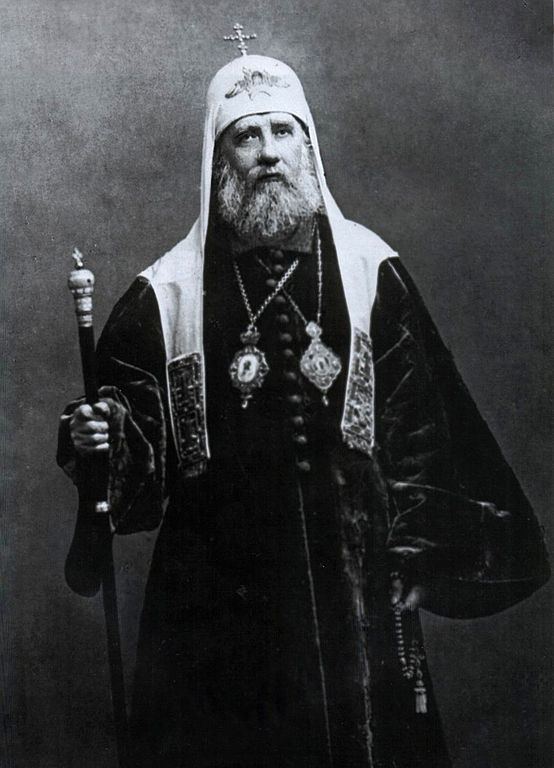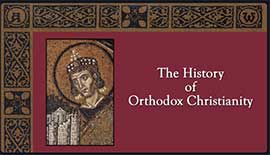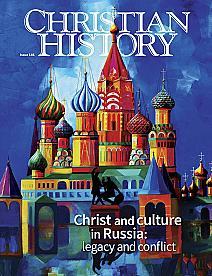TIKHON DARED TO REBUKE THE VIOLENT BOLSHEVIKS

[ABOVE—Tikhon, patriarch and saint of the Russian Orthodox Church—public domain, Wikimedia File:Saint Tichon.jpg]
WHEN THE BOLSHEVIKS gained power in Russia, they acted with unrestrained savagery toward individuals and institutions that impeded their quest for total control. They handled the Orthodox Church with special fury because its doctrines opposed Communism and because Christianity's feared its influence among the people. Thousands of priests, nuns, and laypeople were incarcerated, tortured, and even killed.
On this day, 1 February 1918, Tikhon, the Patriarch of Moscow and all Russia, issued a letter rebuking the Bolsheviks. Tikhon was a tenderhearted and kind man, greatly beloved wherever he held office. That did not prevent him standing for truth:
Think what you are doing, you madmen! Stop your bloody reprisals. Your acts are not merely cruel, they are the works of Satan for which you will burn in Hell fire in the life hereafter and be cursed by future generations in this life.
By the authority given me by God I forbid you to partake of the Christian Mysteries. I anathematize you if you still bear a Christian name and belong by birth to the Orthodox Church.
He called loyal children of the church to defend it, even if they “should have to suffer for the cause of Christ.” He reminded the faithful that nothing could separate them from the love of Christ.
In those difficult times he tried to steer the church out of the path of governmental wrath while still adhering to sound doctrine. Therefore he forbade clergy to make purely political statements. When the Communists’ short-sighted policies resulted in famine, he voluntarily relinquished all the valuables of the church except those items directly used in liturgical services. When the government seized even those items, he protested. He also authorized local bishops to act on their own according to the laws of the church if cut off from instructions from the church hierarchy. Popular resistance against the Bolsheviks, often led by clergy, increased so much that they could maintain their power only by torturing and shooting thousands of people.
The Soviets placed Tikhon under house arrest from April 1922 until June 1923. They fed him false information while he was cut off from other communication, causing him to believe he must make concessions for the sake of the church, and he withdrew his anathema. He emerged from confinement a wasted man and lived for little more than a year after his release. His last words, uttered while crossing himself were, “Glory to Thee, O Lord, glory to Thee.”
Tikhon’s resistance to the Soviets inspired many church people to resistance. His later statements calling for cooperation with the Soviets were often disregarded on the ground they were issued under duress. Most of his successors were imprisoned. Eventually Sergius, the de facto head of the church and eventually its patriarch, achieved a measure of coexistence with the Soviet regime in the 1930s and 40s.
—Dan Graves
----- ----- -----


The History Of Orthodox Christianity Ep3 - Hidden Treasure covers Orthodoxy in the Russian church. Stream this and other videos at RedeemTV. The History of Orthodox Christianity is also available at Vision Video as DVD or download.
Other stories and photos of Tikhon appear in Christian History #146, Christ and Culture in Russia






